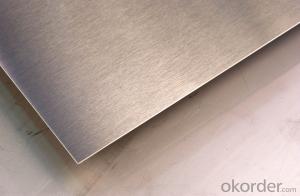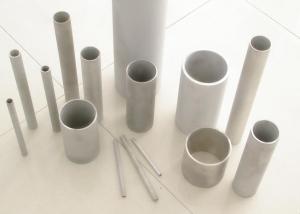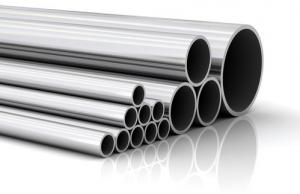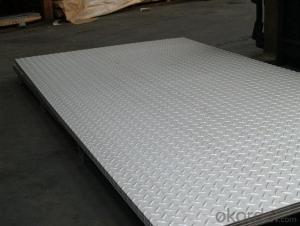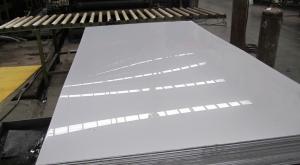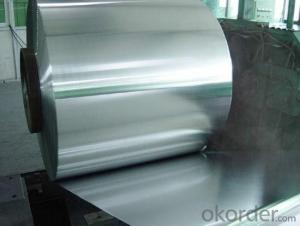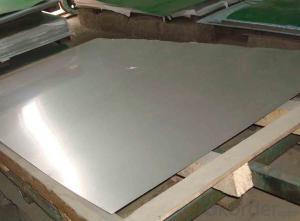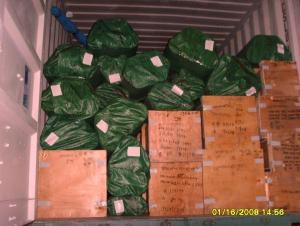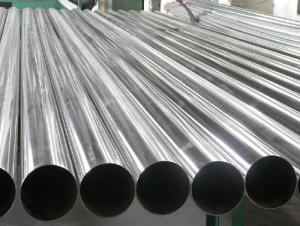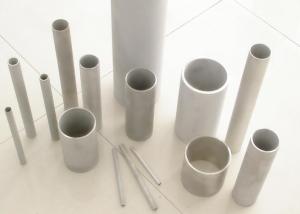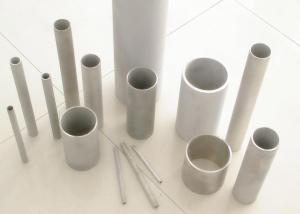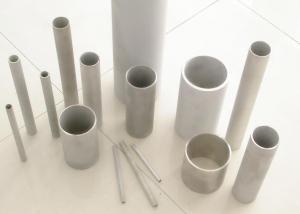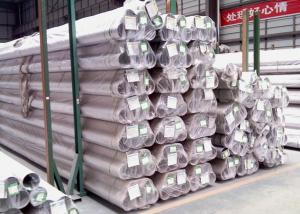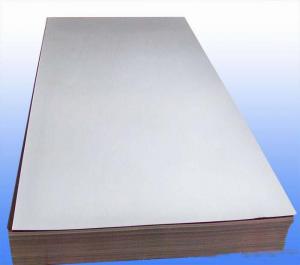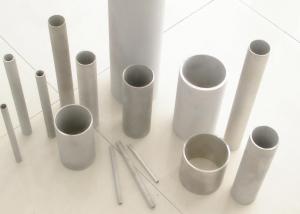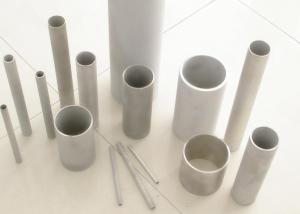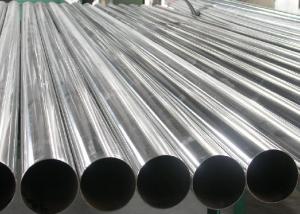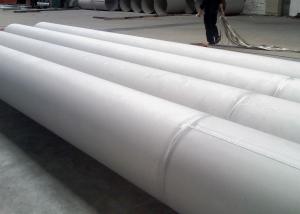Hot-Rolling Stainless Steel Sheets For Chemical Industries With No.1 Finish
- Loading Port:
- Shanghai
- Payment Terms:
- TT OR LC
- Min Order Qty:
- 1 m.t.
- Supply Capability:
- 20000 m.t./month
OKorder Service Pledge
OKorder Financial Service
You Might Also Like
Item specifice
Hot-Rolling Stainless Steel Sheets For Chemical Industries With No.1 Finish
Packaging Details:Wooden pallets,water proof paper-20'GP or 40'GP for stainless steel sheet.
Delivery Detail:within 5-7 days after receiving the deposit
1. Specifications about stainless steel sheet
Commodity | Professional 430 201 202 304 304l 316 316l 321 310s 309s 904l stainless steel sheet |
Grade | 201,202,304,304L,316,316L,310S,309S,321,301,310,410,420,430,904L |
Brand | TISCO ,BAOSTEEL,POSCO,JISCO,LISCO |
Certification | SGS,BV,IQI,TUV,ISO,etc |
Thickness | 0.2mm-150mm |
Width | 1000,1219,1250,1500mm, or as your requirements |
Length | 2000,2438,2500,3000,6000mm, or as your requirements |
Surface | No.1, 2B, BA, 8K Mirror, Hairline,satin, Embossed,brush,No.4,HL,matt,pvc film,laser film. |
Standard | ASTM,AISI,SUS,JIS,EN,DIN,GB, ASME,etc |
Delivery time | 5-7 days after confirming the order |
MOQ | 1 Ton |
Advantages | Showing the splendor of your quality, wearresistant as well , strong corrosion resistance and decorative effect, durable and beautiful in good taste. |
2.Production Flow about stainless steel sheet
Raw materials are sending to hot rolling units for rolling into different sizes
Hot rolled material is annealing in cold; rolled annealing furnace and pickling in acid.
All mill rolls are grinded on precision grinding machine with proper chamfering after first shiftoperation.
All sheets are pickled in different tanks and dried on brush roll machine before dispatched.
These sheets are again annealing and are sent to straighten machine for straightening.
Inspections are done at various stages. Keep proper control overall internal process via rolling,annealin and pickling by our experienced staff.
3.Surface--stainless steel sheet
| Surface Finish | Definition | Application |
| 2B | Those finished, after cold rolling, by heat treatment, pickling or other equivalent treatment and lastly by cold rolling to given appropriate luster. | Medical equipment, Food industry, Construction material, Kitchen utensils. |
BA/8K mirror | Those processed with bright heat treatment after cold rolling. | Kitchen utensils, Electric equipment, Building construction. |
| NO.3 | Those finished by polishing with No.100 to No.120 abrasives specified in JIS R6001. | Kitchen utensils, Building construction. |
| NO.4 | Those finished by polishing with No.150 to No.180 abrasives specified in JIS R6001. | Kitchen utensils, Building construction, Medical equipment. |
| Hairline | Those finished polishing so as to give continuous polishing streaks by using abrasive of suitable grain size. | Building Construction. |
| NO.1 | The surface finished by heat treatment and pickling or processes corresponding there to after hot rolling. | Chemical tank, pipe. |
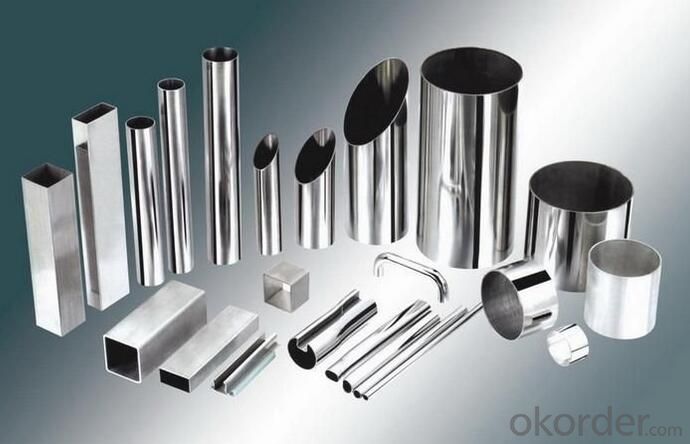
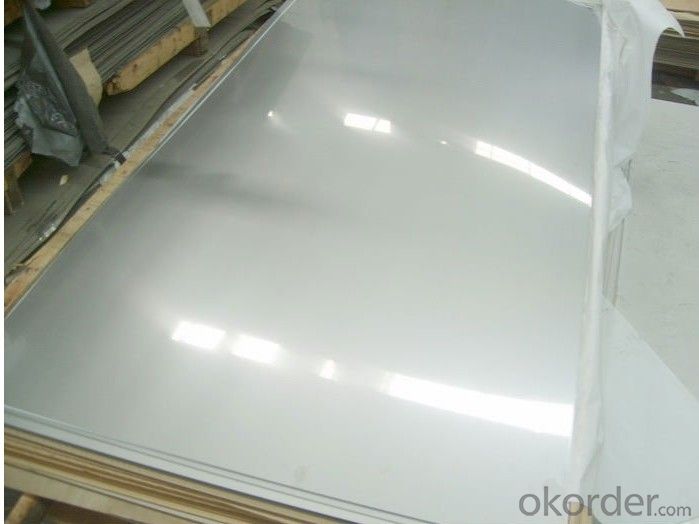
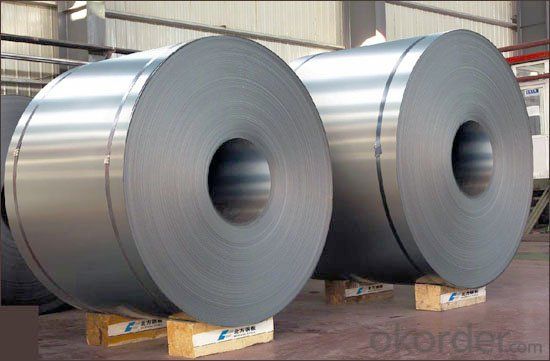
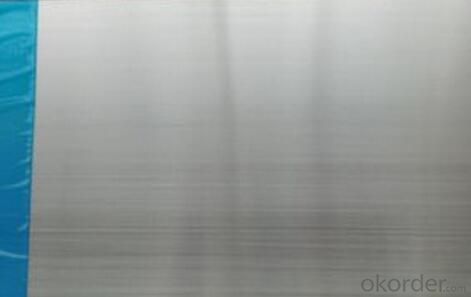
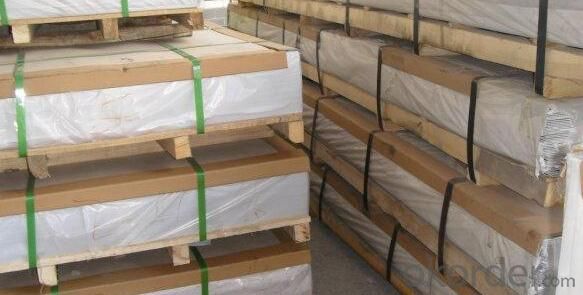
- Q:How do I choose the appropriate gauge for stainless steel sheets?
- There are several factors to consider when deciding on the appropriate gauge for stainless steel sheets. Firstly, it is important to determine the purpose or application of the sheets. Specific gauges are suitable for different uses. For instance, thinner gauges (higher numbers) like 26 or 28 are commonly used for decorative purposes, while thicker gauges (lower numbers) such as 14 or 16 are more suitable for industrial applications that require strength and durability. Secondly, the environment in which the sheets will be used should be taken into account. If the sheets will be exposed to harsh conditions like high temperatures, corrosive chemicals, or heavy impact, it is advisable to choose a thicker gauge to ensure they can withstand these conditions. Moreover, the size and shape of the stainless steel sheets should also be considered. Larger sheets or those with complex shapes may require thicker gauges to prevent bending or warping. Lastly, budget limitations may impact the gauge selection. Thicker gauges generally come at a higher cost than thinner ones, so finding a balance between desired strength and available budget is important. To summarize, when choosing the appropriate gauge for stainless steel sheets, consider the application, environmental conditions, sheet size and shape, and budget. It is also recommended to seek guidance from a professional or supplier who can provide tailored advice based on your specific needs.
- Q:Can stainless steel sheets be used for cladding?
- Indeed, cladding can utilize stainless steel sheets. The preference for stainless steel as a cladding material stems from its robustness, ability to withstand corrosion, and visual allure. It is frequently employed in the external cladding of structures, including facades, canopies, and curtain walls. Stainless steel sheets provide an elegant and contemporary look while furnishing defense against severe environmental circumstances. Furthermore, stainless steel cladding necessitates minimal upkeep, boasts an extended lifespan, and can be effortlessly cleaned, rendering it a pragmatic selection for both residential and commercial purposes.
- Q:Can stainless steel sheets be used for storage containers?
- Yes, stainless steel sheets can be used for storage containers. Stainless steel is a durable and corrosion-resistant material, making it suitable for storing various items safely and maintaining their integrity.
- Q:Are stainless steel sheets suitable for elevator floor panels?
- Yes, stainless steel sheets are suitable for elevator floor panels. Stainless steel is a strong and durable material that is resistant to corrosion, making it a suitable choice for high-traffic areas like elevator floors. It is also easy to clean and maintain, making it ideal for public spaces. Additionally, stainless steel sheets can be customized in terms of size, shape, and finish to meet specific design requirements and aesthetic preferences. Overall, stainless steel sheets offer a combination of durability, aesthetic appeal, and ease of maintenance that make them well-suited for elevator floor panels.
- Q:What drill can drill stainless steel?
- Drilling stainless steel materials, there are two main domestic products: high-speed steel bit, carbide drill. Carbide hollow drill is of high toughness and good wear resistance. It is recommended that you use this material. The price depends on the specifications you need.
- Q:How thick is 10gauge in stainless steel plate?
- The word "gauge" is interesting. This term is often seen in articles reading about metal roofs. It is not a unit of measurement, but a standard measure of width or thickness.
- Q:Can stainless steel sheets be used for water treatment equipment?
- Yes, stainless steel sheets can be used for water treatment equipment. Stainless steel is highly resistant to corrosion, making it suitable for applications involving water treatment, where exposure to moisture and chemicals is common. It is also easy to clean and maintain, making it an ideal choice for water treatment equipment that requires frequent sanitization.
- Q:How do you remove scratches from stainless steel sheets?
- There are a few methods you can try to remove scratches from stainless steel sheets. One option is to use a non-abrasive cleaner or stainless steel polish, applying it with a soft cloth and gently rubbing the scratched area in a circular motion. Another method involves making a paste using baking soda and water, applying it to the scratch, and gently rubbing it with a soft cloth. Additionally, you can use a fine-grit sandpaper to lightly buff the scratch in the direction of the grain. Remember to always test these methods on a small, inconspicuous area first to ensure they do not damage the stainless steel.
- Q:Can stainless steel sheets be used in construction projects?
- Yes, stainless steel sheets can be used in construction projects. Stainless steel is a versatile and durable material that is commonly used in various construction applications. It is known for its corrosion resistance, which makes it suitable for outdoor and high-moisture environments. Stainless steel sheets are often used for roofing, wall cladding, structural components, and decorative features in buildings. They can also be used for interior applications such as countertops, backsplashes, and elevator panels. Additionally, stainless steel sheets are available in various finishes and textures, allowing for customization and aesthetic appeal in construction projects.
- Q:How do you determine the best thickness of stainless steel sheet for a specific application?
- Several factors need to be taken into account when determining the optimal thickness of a stainless steel sheet for a specific application. First and foremost, the intended use of the stainless steel sheet is of utmost importance. Different applications necessitate varying levels of strength, durability, and resistance to corrosion. For instance, if the sheet will be employed in a high-stress environment or exposed to harsh chemicals, it would be prudent to opt for a thicker gauge stainless steel sheet in order to ensure sufficient strength and corrosion resistance. In addition, the size and dimensions of the application must be considered. Larger structures or components may necessitate thicker stainless steel sheets to maintain structural integrity and prevent deformation under load. Conversely, smaller or more delicate applications may benefit from thinner sheets to reduce weight and enhance flexibility. Furthermore, it is crucial to take into account the expected lifespan and maintenance requirements. Generally, thicker stainless steel sheets offer greater longevity and can withstand more wear and tear. However, if the application calls for frequent cleaning or maintenance, a thinner sheet may be more practical. Budgetary constraints should also be factored in. Thicker stainless steel sheets tend to be more costly due to the increased material expense and manufacturing complexity. Striking a balance between desired performance and available resources is crucial in determining the most cost-effective thickness. Lastly, seeking insights from industry standards, guidelines, and experts can be invaluable. Different industries have specific requirements for stainless steel sheet thickness based on their experiences and safety standards. Engaging with professionals can help ensure that the chosen thickness meets the necessary specifications and regulations. In conclusion, the determination of the optimal thickness of stainless steel sheet for a specific application involves considering the intended use, size, expected lifespan, maintenance requirements, budget, and seeking expert guidance. By carefully evaluating these factors, one can make an informed decision and select the most suitable thickness for their specific needs.
1. Manufacturer Overview |
|
|---|---|
| Location | |
| Year Established | |
| Annual Output Value | |
| Main Markets | |
| Company Certifications | |
2. Manufacturer Certificates |
|
|---|---|
| a) Certification Name | |
| Range | |
| Reference | |
| Validity Period | |
3. Manufacturer Capability |
|
|---|---|
| a)Trade Capacity | |
| Nearest Port | |
| Export Percentage | |
| No.of Employees in Trade Department | |
| Language Spoken: | |
| b)Factory Information | |
| Factory Size: | |
| No. of Production Lines | |
| Contract Manufacturing | |
| Product Price Range | |
Send your message to us
Hot-Rolling Stainless Steel Sheets For Chemical Industries With No.1 Finish
- Loading Port:
- Shanghai
- Payment Terms:
- TT OR LC
- Min Order Qty:
- 1 m.t.
- Supply Capability:
- 20000 m.t./month
OKorder Service Pledge
OKorder Financial Service
Similar products
New products
Hot products
Hot Searches
Related keywords
